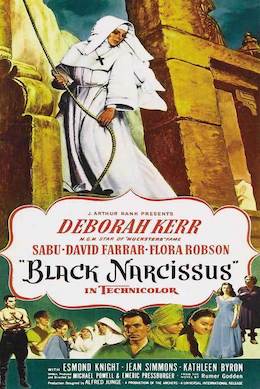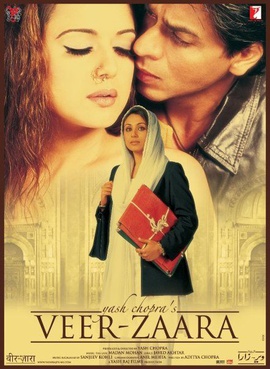Related Research Articles

Black Narcissus is a 1947 British psychological drama film written, produced, and directed by Michael Powell and Emeric Pressburger, and starring Deborah Kerr, Sabu, David Farrar, and Flora Robson, and featuring Esmond Knight, Jean Simmons, and Kathleen Byron. The title refers to the Caron perfume Narcisse Noir.

Glynis Margaret Payne Johns was a British actress. In a career spanning seven decades on stage and screen, Johns appeared in more than 60 films and 30 plays. She received various accolades throughout her career, including a Tony Award and a Drama Desk Award as well as nominations for an Academy Award, a Golden Globe Award, and a Laurence Olivier Award. She was one of the last surviving major stars from the Golden Age of Hollywood and classical years of British cinema.
A feature film or feature-length film, also called a theatrical film, is a narrative film with a running time long enough to be considered the principal or sole presentation in a commercial entertainment program. The term feature film originally referred to the main, full-length film in a cinema program that included a short film and often a newsreel. Matinee programs, especially in the US and Canada, in general, also included cartoons, at least one weekly serial and, typically, a second feature-length film on weekends.

Yash Raj Chopra was an Indian film director and film producer who worked in Hindi cinema. The founding chairman of the film production and distribution company Yash Raj Films, Chopra was the recipient of several awards, including 6 National Film Awards and 8 Filmfare Awards. He is considered among the best Hindi filmmakers, particularly known and admired for his romantic films with strong female leads. For his contributions to film, the Government of India honoured him with the Dadasaheb Phalke Award in 2001, and the Padma Bhushan in 2005. In 2006, British Academy of Film and Television Arts presented him with a lifetime membership, making him the first Indian to receive the honour.

Veer-Zaara is a 2004 Indian Hindi-language epic romantic drama film directed and produced by Yash Chopra, from a screenplay written by his son Aditya Chopra. It stars Shah Rukh Khan and Preity Zinta as the eponymous star-crossed lovers: Veer Pratap Singh (Khan) is an Indian Air Force officer, and Zaara Hayaat Khan (Zinta) is the daughter of a Pakistani politician. Veer is imprisoned on false charges, and 22 years later, a young Pakistani lawyer, named Saamiya Siddiqui, fights his case. Amitabh Bachchan, Hema Malini, Divya Dutta, Manoj Bajpayee, Boman Irani, Anupam Kher and Kirron Kher play supporting roles.

William Rose was an American screenwriter of British and Hollywood films.
The Motion Picture Directors Association (MPDA) was an American non-profit fraternal organization formed by 26 film directors on June 18, 1915, in Los Angeles, California. The organization selected a headquarters to be built there in 1921.
Postmodernist film is a classification for works that articulate the themes and ideas of postmodernism through the medium of cinema. Some of the goals of postmodernist film are to subvert the mainstream conventions of narrative structure and characterization, and to test the audience's suspension of disbelief. Typically, such films also break down the cultural divide between high and low art and often upend typical portrayals of gender, race, class, genre, and time with the goal of creating something that does not abide by traditional narrative expression.

Numerous cultural references to Hamlet reflect the continued influence of this play. Hamlet is one of the most popular of Shakespeare's plays, topping the list at the Royal Shakespeare Company since 1879, as of 2004.
An auteur is an artist with a distinctive approach, usually a film director whose filmmaking control is so unbounded and personal that the director is likened to the "author" of the film, thus manifesting the director's unique style or thematic focus. As an unnamed value, auteurism originated in French film criticism of the late 1940s, and derives from the critical approach of André Bazin and Alexandre Astruc, whereas American critic Andrew Sarris in 1962 called it auteur theory. Yet the concept first appeared in French in 1955 when director François Truffaut termed it policy of the authors, and interpreted the films of some directors, like Alfred Hitchcock, as a body revealing recurring themes and preoccupations.

The following events occurred in April 1954:
A social thriller is a film genre using elements of suspense and horror to augment instances of apparent oppression in society. The genre gained attention by audiences and critics around the late 2010s with the releases of Jordan Peele's Get Out and Us, each film highlighting occurrences of racial alienation. Before Peele, other film actors, directors, and critics had used the term to describe an emerging genre of cinema with examples from all over the globe.
The Indian Film & Television Directors' Association (IFTDA) is an entertainment guild that represents the interests of film and television directors in India. It was founded as the Indian Film Directors' Association (IFDA) in 1960, before adopting today's name in 2007 and welcoming television directors into the guild. Ashoke Pandit is the current president, a role that has been held in the past by K.A. Abbas, Madhusudan, Basu Bhattacharya, Ramesh Saigal, Mahesh Kaul, and Mohan Segal.
Zimbabwe has an active film culture that includes films made in Zimbabwe during its pre- and post-colonial periods. Economic crisis and political crisis have been features of the industry. A publication from the 1980s counted 14 cinemas in Zimbabwe's capital city, Harare. According to a 1998 report only 15 percent of the population had been to a cinema. European and American films have been made on location in Zimbabwe as well as Indian films. American films are popular in Zimbabwe but face restrictions limiting their distribution.
Robert Charles Totten was an American television director, writer, and actor, best known for directing many Gunsmoke episodes between 1966 and 1971.
References
- ↑ Aveyard, Karina; Moran, Albert; Vieth, Errol (26 December 2017). Historical Dictionary of Australian and New Zealand Cinema. Rowman & Littlefield. p. xxxi. ISBN 978-1538111277.
- ↑ "ADG History". Australian Directors Guild. Retrieved 12 March 2019.
- ↑ "About Us". Bangladesh Film Directors Association. Archived from the original on 9 August 2017. Retrieved 12 March 2019.
- 1 2 Coonan, Clifford (12 April 2015). "China Film Directors Guild Honors 'Black Coal, Thin Ice' With Three Awards". The Hollywood Reporter. Retrieved 12 March 2019.
- ↑ "Overview". Directors Guild of America. Retrieved 12 March 2019.
- ↑ "About the DGA". Directors Guild of America. Retrieved 12 March 2019.
- ↑ "About us". Directors Guild of Canada. Retrieved 12 March 2019.
- ↑ "About the Guild". Directors Guild of Canada. Retrieved 12 March 2019.
- ↑ "מי אנחנו" [Who We Are]. איגוד הבמאיות והבמאים (in Hebrew). Retrieved 12 March 2019.
- 1 2 "English Website". Directors Guild of Japan. Retrieved 12 March 2019.
- ↑ Akande, Victor (28 January 2019). "Gbajabiamila unveils new DGN Secretariat". The Nation. Retrieved 12 March 2019.
- 1 2 "English Website". Društvo slovenskih režiserjev. Retrieved 12 March 2019.
- 1 2 "British directors launch guild". Variety. 12 June 2008. Retrieved 12 March 2019.
- ↑ "About Directors UK". Directors UK. Retrieved 12 March 2019.
- ↑ "Who We Are". Federation of European Film Directors. Retrieved 12 March 2019.
- ↑ "Statut" [Statutes]. Hrvatsko društvo filmskih djelatnika (in Croatian). 11 March 2018. Retrieved 12 March 2019.
- ↑ Dzineku, Akorfa (27 June 2018). "FDGG's Constitution Worships Its Founder, Richard J.A. Boateng – Kofi Asamoah Alleges". Zylofon Media Online. Retrieved 12 March 2019.
- ↑ "Mission". Hong Kong Film Directors Guild. Retrieved 12 March 2019.
- ↑ "IFTDA to celebrate 100 years of Indian cinema". News18 . 9 December 2011. Retrieved 12 March 2019.
- ↑ "Welcome to IFTDA". Indian Film & Television Directors’ Association. Retrieved 12 March 2019.
- 1 2 "ARP Missions". L'ARP. March 2018. Retrieved 12 March 2019.
- ↑ "PMPDA". Philippine Motion Picture Directors Association. Retrieved 12 March 2019.
- ↑ "SDGI: About". Screen Directors Guild of Ireland. Retrieved 12 March 2019.
- ↑ "About DEGNZ". Directors & Editors Guild of NZ. Retrieved 12 March 2019.
- ↑ "History & Awards". The Directors Guild of Great Britain. Retrieved 12 March 2019.
- ↑ "About Us". The Directors Guild of Great Britain. Retrieved 12 March 2019.
- ↑ Slide, Anthony (2014). The New Historical Dictionary of the American Film Industry. Routledge. p. 131. ISBN 978-1135925543 . Retrieved 12 March 2019– via GoogleBooks.
- ↑ Pond, Steve (2008). "A Guild is Born". Directors Guild of America. Retrieved 12 March 2019.
- ↑ Review of Indonesian and Malayan Affairs. Vol. 19. University of Sydney. 1985. p. 15. Retrieved 12 March 2019– via GoogleBooks.
- ↑ Winarno, Ateng (1991). Kamus singkatan dan akronim: baru dan lama [Dictionary of Abbreviations and Acronyms: new and old] (in Malay). Kanisius. p. 578. ISBN 979413015X . Retrieved 12 March 2019– via GoogleBooks.